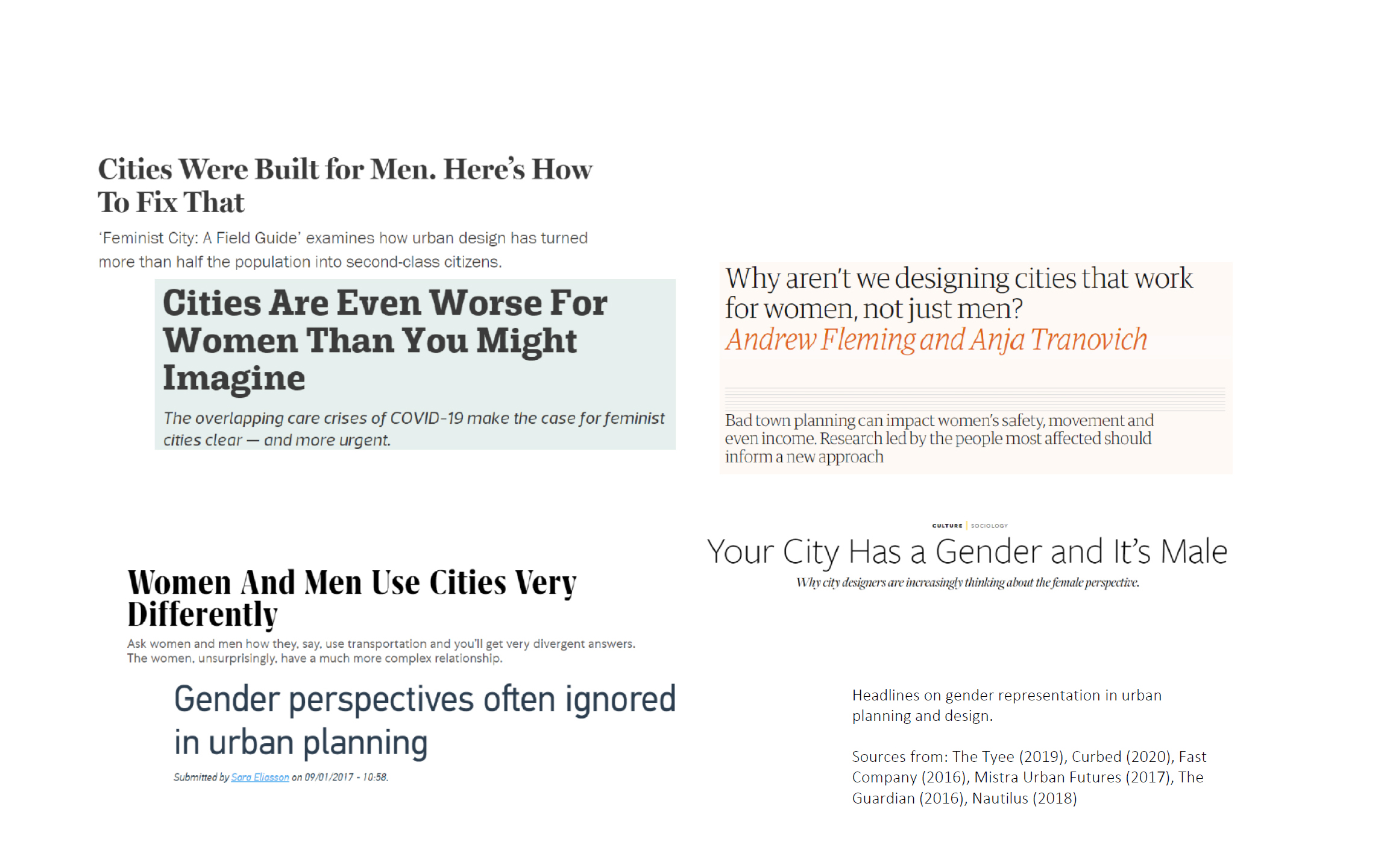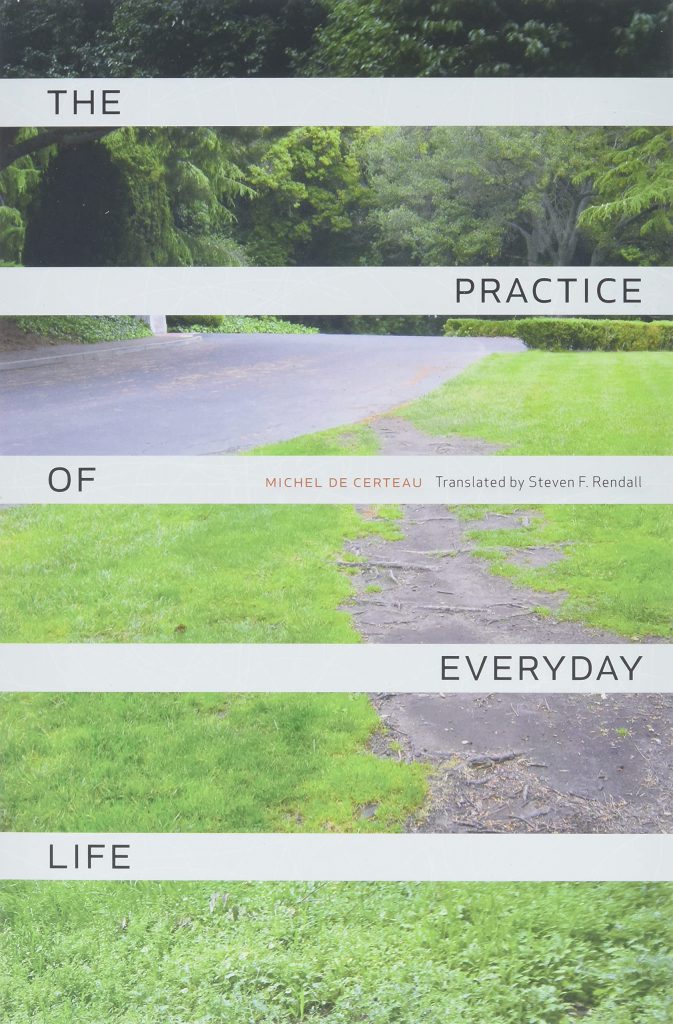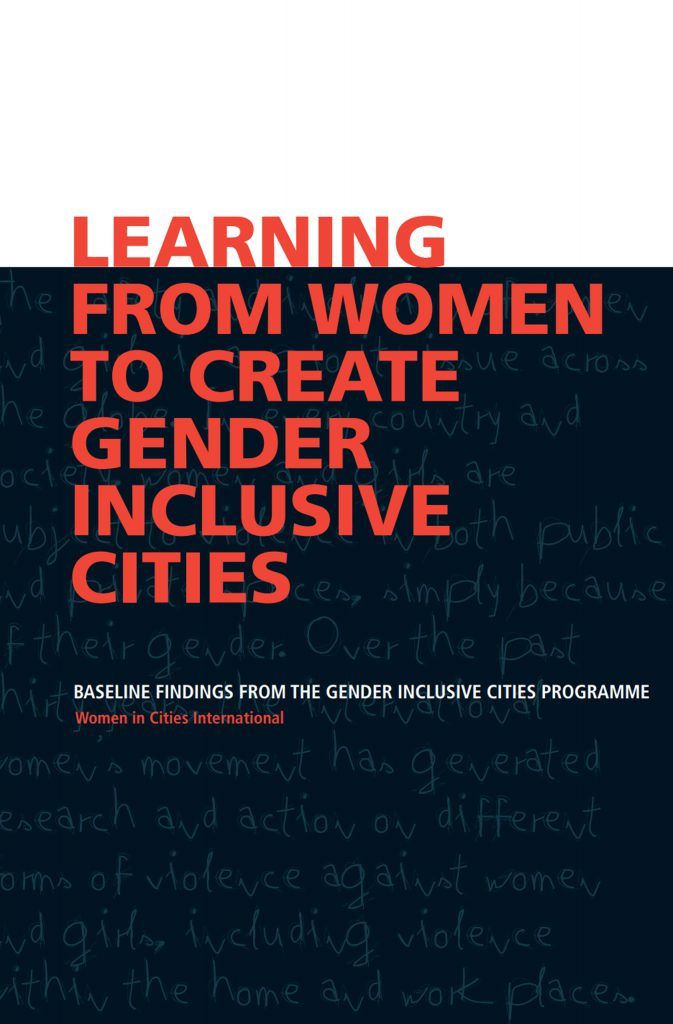

Proposed Programme
As social scientists, policymakers, and urban designers increasingly talk about pushing for inclusion in the field and designing for gender equality, we need to make sure actions address root causes, rather than just solve superficial manifestations of a larger problem. An ambitious vision and framework has been set in 2021 for the transformation of Newcastle’s city centre, called Newcastle City Centre Transformation Programme (CCTP), hoping to set and create more safe, inclusive and equitable places. This research is inspired by a feminist reading of Michel de Certeau’s work on urban space and narrative in ‘The Practice of Everyday Life’ (de Certeau, 1984), frames walking as an elementary method and embodied form of experiencing urban space. The proposed research seeks to fill the clear gap between policy and practice, intention and action, by showing why and how to incorporate gender inclusion into urban planning and design. It investigates gender walks as a possible method for knowledge-gathering for the (re-)planning and (re)design process with the following three objectives:
Objective 1) embedding gender-sensitive planning and design with CCPT to alter male walking symbols by adding female traits, and to increase gender-inclusive representation in urban design. Before applying solutions, exploratory “Gender Walks” will be held to determine the black spots, and as the collaborative knowledge to explore the current gender inequalities show up between the social and spatial structures of the urban environment.
Objective 2) making streets safer and more accessible via (re)design and (re)planning: avoiding hidden spots and dark areas by improving lighting, widening sidewalks, removing physical barriers or even including “movement plans” to make sure that there are no deserted areas, making women’s typical patterns of movement and use of the city more convenient.
Objective 3) Setting an international research network with other scholars who are looking at practical approaches, activities, and design guidelines that show how to implement a participatory and inclusive design process that explores the experiences and uses of the city from the perspective of all citizens.
Impact
In the short to medium term, the project will share the ideas, tactics and spatial changes that will contribute to the ongoing Newcastle City Centre Transformation Programme, so that you and others might be able to benefit from these ideas. The proposed gender mainstreaming toolkit provides practical guidance on how to incorporate gender issues into planning at the local level, helping promote equality between women and men. The target audience for this toolkit includes those responsible for:
- Formulating and implementing planning policy (planners)
- Making decisions about the content of planning policy (elected members)
- Implementing planning policy (development control planners or development facilitators)
The toolkit will also be useful for those engaged with the planning process, including community groups, groups representing women and men and those providing advice to communities such as consultants and planning aid organisations.
The study is also intended to have a long-term benefit, resulting in recommendations for filling clear gap between policy and practice, intention and action, and showing why and how to incorporate gender inclusion into urban planning and design, in different contexts of global cities.
Take Part
The study is in three parts covering in-depth interviews, gender walks and focus groups, these research activities allow us to understand and recognise the different needs and requirements between women and men from planning and design perspectives.
You can browse through the different planned events here; it is important that you understand why the research is being done and what it will involve, so please read the information sheets carefully. Take time to decide whether or not you wish to take part. You will be free to withdraw at any time, without giving any reason and requesting the destruction of your data.
If you have any questions or concerns you would like to have discussed before participating in this research, please feel free to drop us an email here.


